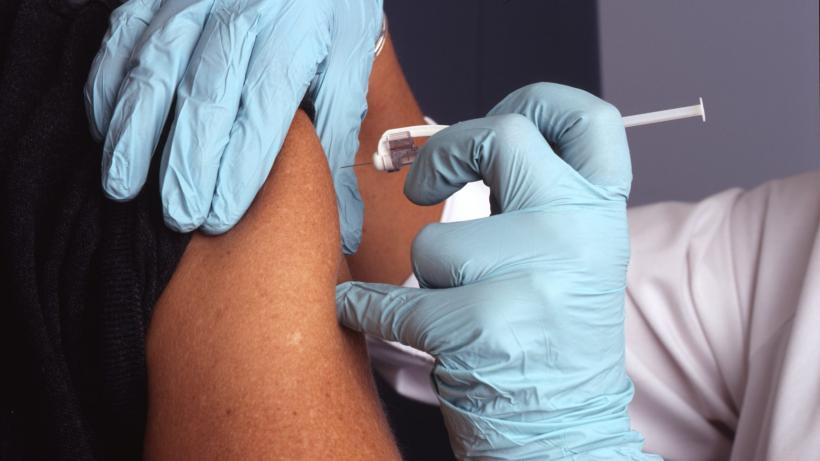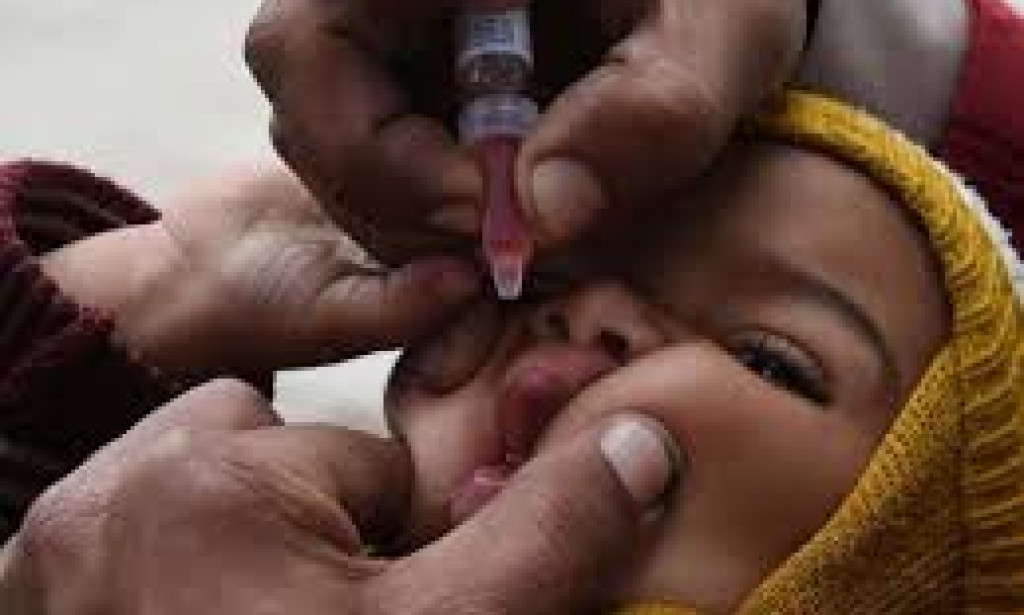Table of Contents
- Introduction: The Growing Concern of Vaccine Hesitancy
- The Science Behind Vaccines: What Parents Should Know
- Reasons for Vaccine Hesitancy Among Parents
- The Impact of Vaccine Reluctance on Public Health
- Addressing Concerns: How to Improve Vaccine Uptake
- The Role of Healthcare Providers in Combating Hesitancy
- Conclusion: Building Trust and Ensuring Protection
1. Introduction: The Growing Concern of Vaccine Hesitancy
Despite the overwhelming scientific consensus on the safety and efficacy of vaccines, vaccine hesitancy remains a significant issue globally. A recent surge in vaccine-preventable diseases, such as measles, has highlighted the dangers of failing to vaccinate children. Yet, a significant number of parents continue to delay or refuse vaccinations for their children, citing a variety of concerns. This reluctance poses not only a risk to individual children but also threatens public health by compromising herd immunity, which protects those who cannot be vaccinated due to medical reasons.
In many countries, vaccine coverage rates are still high, but pockets of vaccine hesitancy persist, particularly in specific regions or communities. While the internet and social media platforms have facilitated the spread of misinformation, personal beliefs, and anecdotal stories, addressing vaccine reluctance is essential to ensure that immunization efforts remain effective in preventing disease outbreaks. Understanding the root causes of vaccine hesitancy, how it affects public health, and how healthcare professionals can better communicate the importance of vaccines is vital to overcoming this barrier.

2. The Science Behind Vaccines: What Parents Should Know
Vaccines are one of the most successful public health interventions in history, responsible for the control and near-eradication of diseases such as polio, smallpox, and diphtheria. Vaccines work by training the immune system to recognize and fight specific pathogens, thus preventing illness before it can take hold. They are thoroughly tested for safety and efficacy in clinical trials, and their ongoing monitoring ensures that they remain safe for the general population.
The benefits of vaccination are far-reaching. Vaccines prevent not only individual illness but also reduce the transmission of infectious diseases to others, including those who are unable to receive vaccines, such as infants, elderly individuals, and those with compromised immune systems. The concept of herd immunity explains that when a large percentage of the population is vaccinated, the spread of disease is significantly reduced, offering indirect protection to those who are vulnerable or unvaccinated.
Understanding the science behind vaccines can help dispel the myths and misinformation that fuel vaccine hesitancy. Vaccines are safe, effective, and critical to maintaining the health of the population as a whole.
3. Reasons for Vaccine Hesitancy Among Parents
There are several reasons why parents may be hesitant to vaccinate their children, even in the face of strong scientific evidence supporting vaccines. Some of the most common factors include:
-
Misinformation and Fear: The rise of anti-vaccine movements, fueled by misinformation and pseudoscience, has created a climate of fear around vaccines. Alarmist claims, such as the debunked link between vaccines and autism, continue to circulate on social media and other platforms, causing confusion and fear among parents.
-
Distrust of the Medical Establishment: Some parents are skeptical of the motives of pharmaceutical companies and healthcare providers. Concerns about corporate influence, vaccine side effects, and a perceived lack of transparency can lead to reluctance to vaccinate.
-
Perceived Risk vs. Benefit: Some parents believe that the risks associated with vaccines outweigh the benefits, particularly for diseases they perceive as rare or non-threatening. This is especially true in regions where vaccine-preventable diseases have been largely eliminated, and parents may not fully grasp the severity of these diseases.
-
Cultural and Religious Beliefs: In some communities, cultural or religious beliefs may conflict with the idea of vaccination. Parents may feel that vaccines are unnatural or may oppose them due to concerns about religious or spiritual purity.
-
Personal Experience and Anecdotal Evidence: Negative experiences, such as a child experiencing a mild reaction to a vaccine or hearing about a rare adverse event, can create lasting fears. These anecdotal accounts often have a disproportionate impact on decision-making, especially when they are shared in emotional or misleading ways.
By understanding these reasons, healthcare professionals can develop strategies to address vaccine hesitancy effectively.

4. The Impact of Vaccine Reluctance on Public Health
Vaccine reluctance has serious consequences for public health. One of the most visible impacts is the resurgence of diseases that were once nearly eradicated. Measles, for example, has made a comeback in various countries due to lower vaccination rates. In the United States, there were 1,282 reported cases of measles in 2019, the highest number since 1992, with many of these cases occurring in communities with low vaccination coverage.
When vaccine uptake drops, herd immunity weakens, making it easier for diseases to spread. This can result in outbreaks that are costly, both in terms of healthcare resources and human lives. Additionally, vaccine-preventable diseases can lead to long-term health complications, including hospitalization, disability, and death, particularly among vulnerable populations such as young children, the elderly, and individuals with weakened immune systems.
Beyond the individual level, low vaccination rates contribute to the overall burden on public health systems, leading to unnecessary medical costs, strain on healthcare providers, and potential disruptions to daily life.
5. Addressing Concerns: How to Improve Vaccine Uptake
Addressing vaccine hesitancy requires a multi-faceted approach. Some key strategies include:
-
Clear, Evidence-Based Communication: Healthcare providers must take the time to discuss the benefits and risks of vaccines with parents, using clear, science-based information. Open conversations, where parents can ask questions and voice concerns, are essential to building trust.
-
Combatting Misinformation: Public health campaigns should aim to correct misinformation and counter the fear-based narratives that dominate anti-vaccine messaging. This includes sharing accurate information on social media, collaborating with influencers, and providing easily accessible resources for parents.
-
Incentives and Support: Some governments and organizations have found success in increasing vaccination rates by providing incentives, such as free vaccinations or access to vaccination clinics in convenient locations. Additionally, making vaccines more accessible and affordable can reduce barriers to vaccination.
-
Community Engagement: Collaborating with community leaders, including religious and cultural figures, can help address vaccine concerns and increase acceptance. Tailored outreach efforts that respect cultural beliefs can play a crucial role in overcoming reluctance.
-
Addressing Distrust: Efforts to increase transparency in vaccine development, manufacturing, and safety monitoring can help address concerns about corporate influence and the integrity of medical recommendations.
6. The Role of Healthcare Providers in Combating Hesitancy
Healthcare providers, including pediatricians and family doctors, are on the front lines of combating vaccine hesitancy. They play a critical role in educating parents, addressing concerns, and providing reassurance about vaccine safety. Building a trusting relationship between healthcare providers and parents is essential for effective communication.
One of the most effective ways for healthcare providers to encourage vaccination is to recommend vaccines strongly and consistently, without hesitation. Studies have shown that parents are more likely to vaccinate their children when their healthcare provider offers a clear, positive endorsement of vaccines.
Providers can also stay informed about the latest research and vaccination guidelines to provide parents with the most accurate and up-to-date information. Additionally, offering resources like pamphlets, websites, and follow-up support can help parents feel more confident in their decision to vaccinate.
7. Conclusion: Building Trust and Ensuring Protection
Vaccine hesitancy remains a significant challenge in the fight against preventable diseases, but it is a challenge that can be overcome. By understanding the root causes of reluctance, providing clear and accurate information, and fostering trust between healthcare providers and parents, we can increase vaccination rates and protect public health.
Vaccines are one of the most effective tools we have to prevent illness and save lives. Ensuring that every child receives the recommended vaccines is essential to building a healthier, safer future for all.



You must be logged in to post a comment.